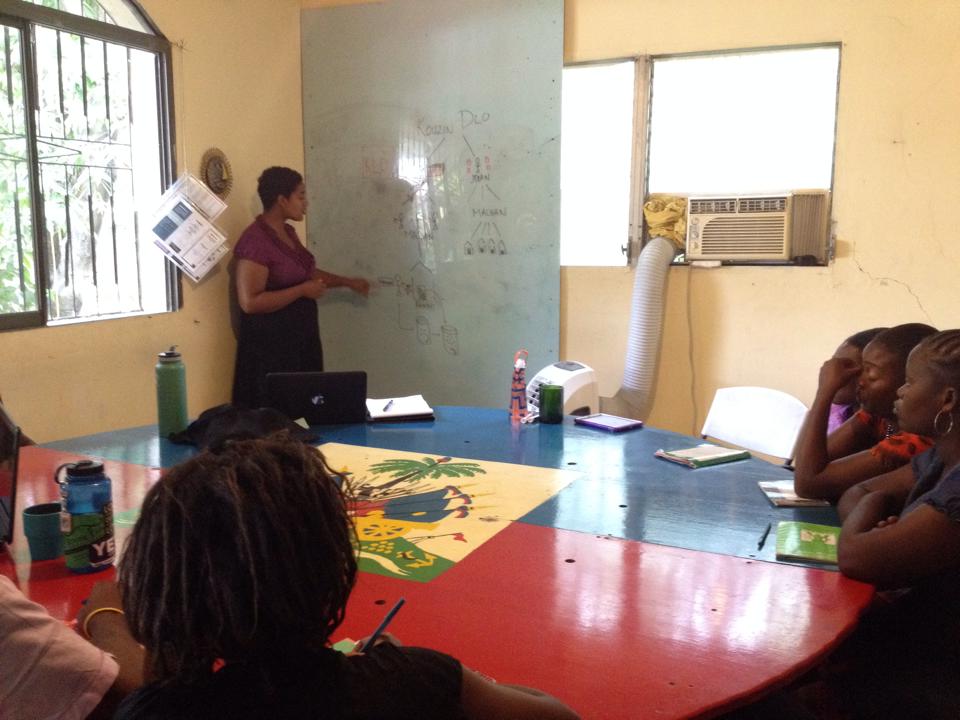Lindsay Leigh
June 21, 2014
This past Sunday, the team arrived in Port-au-Prince, and on Monday, hit the ground running. In the five days since then, there have been only small challenges, and for the most part, so far so good!

The team piled into the car and headed out to the two communities out of which we are launching the pilot.
In Bwa Nef, we visited with Luc Winter of our community partner, RAJEPRE. We observed water sources and learned that people mostly buy water from municipal DINEPA kiosks which are usually untreated. We were also able to visit community spaces and potential spots for future trainings, meetings, and promotional events.
The second community, MENELAS, is just is a stone’s throw from Bwa Nef, but has a very different water landscape. There, we visited a community school and church, Haitian Outreach Ministries, as well as a family that works closely with our second community partner, Team Tassy. The family let us know that there are private reverse osmosis water kiosks as well as free untreated wells to pump water from. Chlorine and other water treatment products are hard to come by in the community.
Aside from the two planned pilot communities, we were also able to take a quick visit to a farming community, Vodrey. They have their own small-scale chlorine producing operation and we talked to them about their challenges with pricing and production.
This day we were able to visit our supplier, Deep Springs International (DSI). DSI makes and distributes Gadyen Dlo, a stabilized liquid chlorine product. Each unit can treat 37 5-gallon buckets of water. During our visit, their training staff was able to give us valuable insights into the water treatment training they will be carrying out for our entrepreneurs and we purchased our first order of chlorine!
Training starts! Today, we welcome our first trainees to Haiti Communitere to participate in the very first Community Chlorinators Hub staff training session. Ourartners helped identify promising business ladies from both communities to participate in the training. The trainees were enthusiastic to learn more about water issues and the CC business, and market research was assigned for homework.
Willio from iLab Haiti took over for the day and conducted a Design Thinking workshop. Willio is a fantastic facilitator and was able to interact with the participants in a productive and engaging way. He helped everyone brainstorm how the Community Chlorinators business model could realistically be applied to each respective community.
We continued our training with discussion about how we would regularly monitor business operations. The participants provided us with great cultural insight regarding what questions would yield accurate and useful results and what wouldn’t be well received.
In conclusion, the first week went great and our potential Haitian staff contributed greatly to developing the pilot business plan. We’ve made incredible headway in this short time and have collected a great deal of information and answers to questions both anticipated and unanticipated prior to hitting the ground.
Time for week #2!
- Lindsay